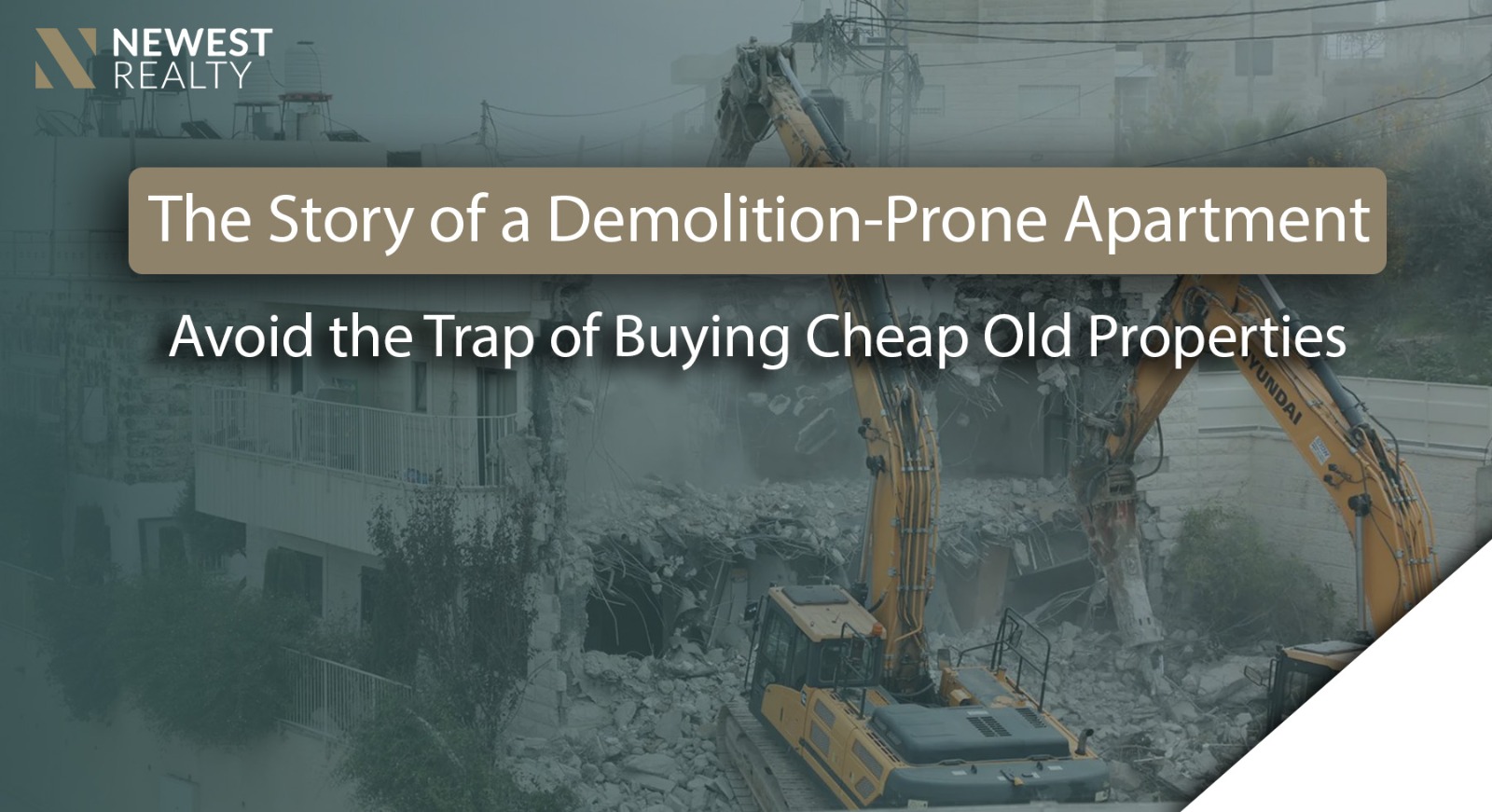The Story of a Demolition-Prone Apartment: How to Avoid the Trap of Buying Cheap Old Properties in Istanbul
With the continuous rise in property prices, many buyers are looking for affordable opportunities, especially in older districts of Istanbul such as Fatih, Eyüp, Beyoğlu, and Taksim. However, what many fail to realize is that purchasing an old, cheap property could lead to major problems — including eviction or even demolition orders from the municipality.
A Real-Life Story
A buyer once found a very attractive deal and purchased an apartment at a tempting price. But just two or three months later, he received an unexpected eviction order from the municipality. Unfortunately, he had no idea how to get his money back or resell the property.
This isn’t a rare case — it’s something that happens daily to many investors and homebuyers.
The Real Cause Behind the Problem
Old properties in redevelopment areas like Fatih, Eyüp, Beyoğlu, and Taksim are often sold at very low prices because they are already under demolition orders or part of upcoming government redevelopment projects.
Purchasing such properties without careful research means you’re buying a “demolition project”, not a ready-to-live or income-generating asset.
How Does This Kind of Deception Happen?
When investors or buyers search for properties within a limited budget (say $50,000–$60,000), they may come across older apartments of similar size but significantly cheaper than the market rate.
The buyer pays for the property, registers the title deed in their name, and assumes that a bit of interior renovation will make it a modern home. But shortly after, a demolition or eviction notice from the municipality arrives.
Why Are These Properties So Cheap?
In many cases, these properties have already been under demolition orders for months or even years. So when someone buys one, they’re implicitly agreeing to participate in the reconstruction project with a contracted construction company.
This means the old property owner no longer holds ownership of the unit itself, but rather a share in a future project, which may not match the amount originally paid.
How to Avoid Falling into This Trap
- Thoroughly research the property before buying: Check the property's legal history. Has a demolition order been issued? Is it located in a redevelopment zone?
- Seek professional advice: Never buy property without consulting a lawyer or real estate expert. A few hundred dollars in consultation fees could save you thousands in future losses.
- Don’t fall for ultra-cheap offers: If a price is significantly below market value, treat it as a red flag and investigate further.
- Understand the redevelopment process: If the property is part of a redevelopment project, be prepared for a long-term construction partnership — not just simple property ownership.
Who Should Consider Redevelopment Properties?
- Traders and experienced investors who can afford reconstruction costs and seek profits from development projects.
- Regular homebuyers looking to live in older neighborhoods are advised to avoid such properties — unless the project is well-studied and clearly planned.
Conclusion
Buying a cheap property in redevelopment areas without proper study or expert advice can lead to major financial losses and legal headaches.
Successful real estate investment requires knowledge, planning, and patience — not impulsive decisions based solely on low prices.


